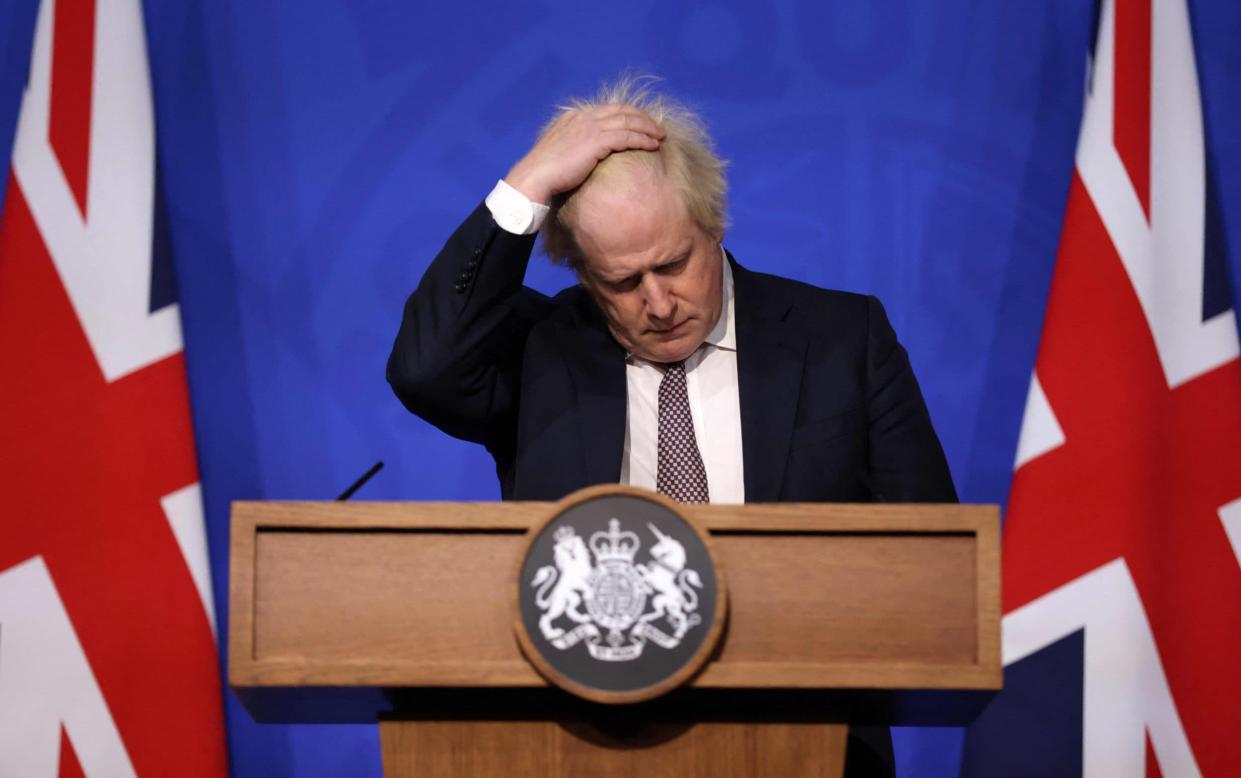Nobody wants to confront the truth about lockdown

Imagine going back in time to January 2020 and explaining to your former self that, within months, going outside would become a matter of public debate, police drones would pursue dog walkers on hillsides, and lawmakers would issue guidance about the correct diameter of a Scotch egg. You’d think it was mad, wouldn’t you?
What if you then told yourself that grieving relatives would be ripped from one another’s arms at funerals while a network of informants busily ratted on their neighbours? You’d probably think a much darker madness had taken hold. When illusions fade away, they can do so in two ways: tragedy and farce. This week marks three years since the first lockdown was imposed and it’s abundantly clear that, during that period, we did our very best to max out the possibilities of both.
The collateral damage of lockdown is all around us; inflation, shattered firms, the impact on children, almost invulnerable to the virus, who were nevertheless denied an education. It also left subtler, yet equally pernicious, legacies. Public support for lockdown became a sort of psychosis, in which millions happily retreated from reality; and some never returned.
What, if anything, have we learnt from all this? Sadly, in terms of profound takeaways, I fear the most lockdown achieved was to shatter our remaining illusions – about ourselves, our beliefs, and our priorities as a society.
During the pandemic, we heard much about “solidarity” – often with the NHS as the unassailable lynchpin. But this had a harsh edge, which made all the clapping and civic-mindedness ring false. It wasn’t just the snitching. Lockdown zealots showed a distinct lack of empathy towards those who might be struggling, or mentally or financially unable to comply. Lockdown critics were smeared, in a way that continues to leave a bad taste for those of us who were on the receiving end of bad faith “Why do you want people to die?” arguments.
It shattered our pretence of rationality, too, as we retreated into superstition. True, this often had a modern, scientific basis, but many of the rituals, from masks outside to almost liturgical sanitation of hands, had as much effect on transmission as spells invoking the protection of imps would have done. Yet still they were followed, with a panicked presumption that a) they would work and b) that, by doing them, one would somehow be shown as a “good person”. The scientific method mutated into “The Science” (TM) which stood as pagan totem: its name chanted in invocation, its sacrifices mandatory.
Many of the same logical fallacies remain in rude health. Even now, pro-lockdowners ignore the example of Sweden because its experience of Covid doesn’t fit their mantra – “we had no choice”. Justifications (but not opinions) have shifted with the evidence. When Sweden appeared to be doing badly, it was “because it failed to lock down”. Now the data have moved in Sweden’s favour, it’s because “Sweden had an unofficial lockdown all along”. The Telegraph’s Lockdown Files exposed the self-fulfilling logic behind many decisions. Coercion became its own justification, as when Matt Hancock feared cutting isolation times would dilute the message and “imply we’ve been wrong”. Whether you agree with lockdown or not, this is an appalling way to govern.
Many economic commentators proved remarkably slow to grasp what commonsense onlookers had been saying all along; that spraying money around is bound to lead to inflationary disaster. With a few notable exceptions, such as the Sunday Telegraph’s Liam Halligan and Kate Andrews of the Spectator, most reached the Economist’s view in December 2020: “A surge in inflation looks unlikely.” There were probably face-saving reasons at play here, as well as ignorance. Having argued for “generous” support schemes, some in the economic establishment perhaps had too much skin in the game to take a truly impartial view.
Alongside all this was something more intangible. The change, in many ways, came from ourselves. Public readiness to allow so many basic functions of life – worship, exercise, social interaction – to be dismissed as “non-essential” suggests an inability to bear ordinary risks once inseparable from existence; expectations of a level of “security” unthinkable to previous generations. Even if we never lock down in precisely the same way again, a Rubicon has still been crossed.
All told, we didn’t finish stronger or more united, we simply ended up with the cold truth that, for many of us, things we claim to value – freedom, the next generation, prosperity, mental wellbeing – actually didn’t really matter very much. When that becomes clear, there is little left for a society to coalesce around. All that remains are the fragments of those past illusions.
Today, Boris Johnson will appear before the Privileges Committee; revisiting partygate once again. It may spell the end of his political career. Many view his collapse as redolent of Greek tragedy; a man brought low by his own hubris. I view his tragedy slightly differently. Imagine if, rather than ceding to government-by-opinion-poll, he’d stuck to his original liberal instincts on lockdown. Once again Westminster is back in its comfort zone – that of political drama, gripes about hypocrisy and rules being applied evenly. Vital questions risk being lost along the way; about whether those laws were justified in the first place, and the incalculable damage they caused.

